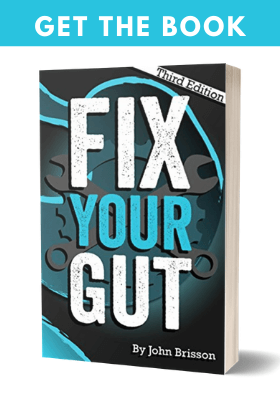According to the U.S. Census Bureau, truck driving is the most common job in the United States. Truck drivers play an extremely important role in our supply chain, but driving for ten hours a day, and not having a kitchen can lead to some poor health outcomes unless you plan well. Truck drivers can only drive for ten hours a day, what do you do with the other twelve? Let’s take a look at how to make some of the most important workers healthier.
Tip #1 – Get a Gym Membership
Places like Gold’s or 24-Hour Fitness offer multi-site memberships, so no matter where you are, you can easily find a gym and get in a workout. But how do I get to the gym? is a common excuse that I hear. Walk, take an Uber, or take along a folding bike. Seriously! Whatever it takes. Many gyms even have Saunas which can produce some nice heat shock proteins to offset the damage that sitting for ten hours a day does to your cardiovascular system. Find a gym and get it done!
Tip #2 – Meal Planning
Being on the road for long periods of time can lead to poor food choices. Avoid fast food at all costs and try to keep some groceries on hand. Go down the produce section and load up on healthy fruits like berries, dark leafy greens, and maybe pick up some white potatoes (microwave required). Potatoes are filling, loaded with vitamins and potassium which will relax your blood vessels, and keep you full for a long time. For protein, sardines should be a staple. They contain omega-3 fatty acids that will keep your heart healthy—and considering the amount of time you spend driving, your heart probably needs it. A rotisserie chicken (also high in potassium) might be a good option too (don’t eat the skin), and if you can have a portable cooler, you won’t have to eat it all in one sitting.
Tip #3 – Stress Management
Driving is a dangerous activity, and your autonomic nervous system is not well adapted. “Hey! That guy just cut me off!”, “Look at the size of that pothole!”, or “Gosh, it’s raining pretty hard!” create life or death situations all day, every day! Relax when you can. Listen to relaxing music or watch a light hearted television show or movie. Magnesium supplementation can help by reducing cortisol levels and make your body more resilient to stress.
Tip #4 – Sleep Well with Circadian Rhythm Management
The roads are more clear at night, but staying up all night driving is also terrible for you. I get it, you get paid by the mile, not by the hour, so driving in the daytime will cut into your earnings. Well is it really worth tripling your risk of heart attack, stroke, and cancer? Obviously not, because your medical treatments will cost way more than the pay gap between those two. The difference is night and day (sorry, I had to). I would also strongly discourage wearing sunglasses during the daytime, try to get some outdoor sun exposure early in the morning, and stay off your phone, computer, and TV as much as possible after sundown. If you have to be on a screen, dim the brightness as much as possible.
Tip #5 – Limit the Use of Caffeine and Nicotine
When you are sitting for ten hours a day, it’s tough for your heart to get blood to and from your legs. If you take vasoconstrictors like caffeine, or nicotine, it’s going to be even harder, and you could develop health issues as a result. Polyphenols from berries, oranges, or white potatoes will relax the blood vessels which is a good alternative to Red Bull, which constricts them. You may also want to consider wearing some compression socks which will make things easier on your heart.
Looking to solve a specific issue as a trucker? Download the Fix Your Gut book & schedule a health coaching session because it’s worth your time.







The gym membership is totally unrealistic. Plus the hours are all wrong. You can drive for 11 hours a day but your shift is 14 hours max. Thus most truckers only have 10 hours of freedom every single day. Taking an Uber to the gym is about a 20 minute wait for the Uber, who knows how long to the gym, a decent workout is an hour, and then you’ll want to shower and probably relax in a sauna after all that which could easily eat up 3 of your 10 hours of freedom. Now you’ve got at most 7 hours for sleep. Which considering how stressful the job is, 7 hours seems kinda low.